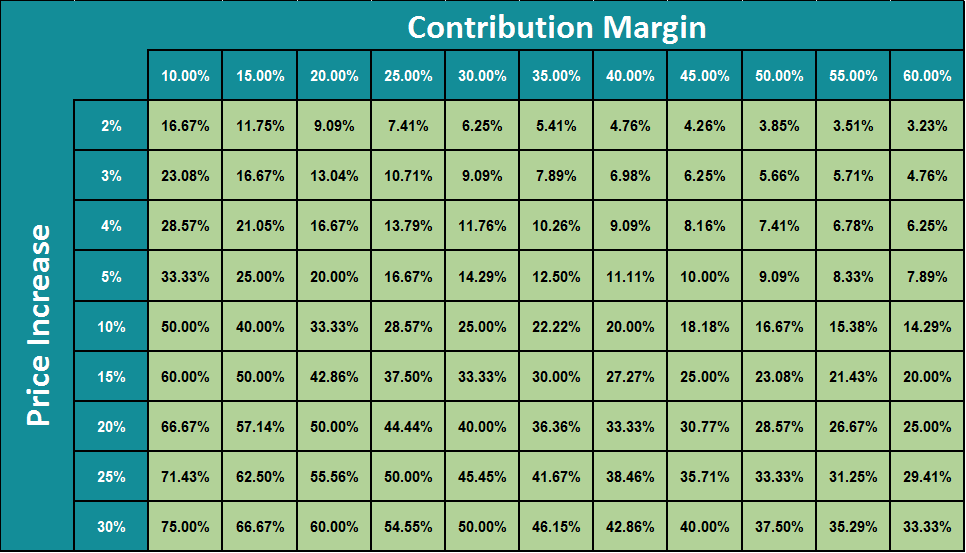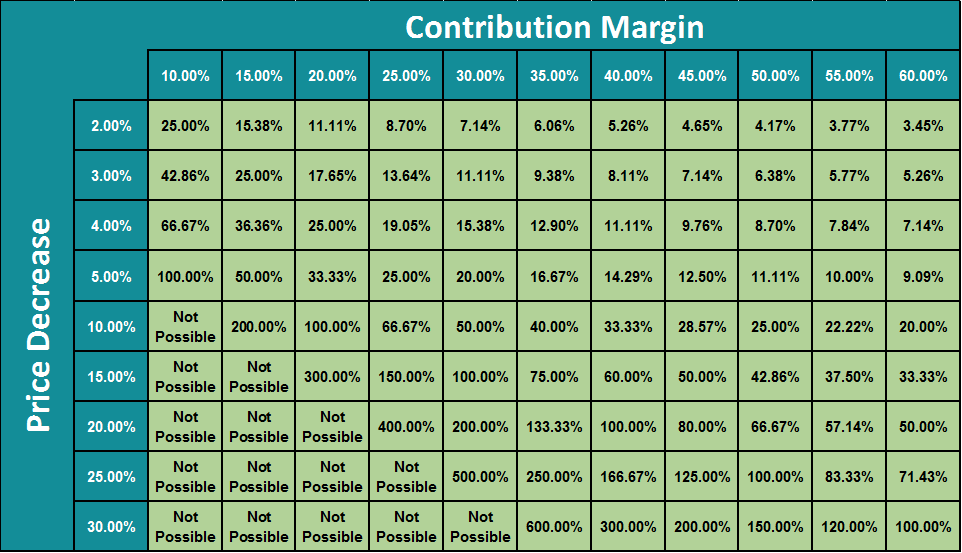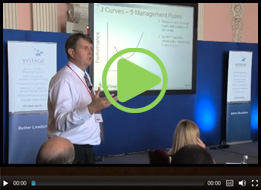What would be the impact of price increase or price discount on your business? In this blog we’re going to look at your pricing strategy.
A lot of people tell me their businesses don’t set their own pricing; the market does that for them. This is not true in most cases. It is true to say that there are a small percentage of businesses that don’t have any control over their pricing. If you’re selling a product that is regulated by law, you have no control. If you’re selling homogenous commodities like gasoline/milk/wool, the world markets will set the price. Sometimes you may be selling to an 800-pound gorilla. Do you know where an 800-pound gorilla sits in the room? The answer is anywhere it wants to. If you’re selling to an 800-pound gorilla you get told what the price is, take it or leave it. But for the other 99 percent of businesses, you have control over your pricing.
Your contribution margin is how much of each dollar of sales is remaining after all variable costs are covered. It called a contribution margin because it is the component of the sales dollars that contributes to covering fixed costs and profit.
For example, if your contribution margin is 30% and you increase your price by 10%, if you lose exactly 25% of your volume margin you will generate exactly the same contribution margin in dollars. However if you discount your price by 10% you will need to increase your volume by 50% to generate the same contribution margin in dollars.
The Impact of Price Increase
After a Price Increase, what percentage drop in unit sales will result in the same $ Contribution Margin?

The impact of a Price Increase
The Impact of Price Discount
After a Price Decrease, what percentage increase in unit sales will be necessary to result in the same $ Contribution Margin?

The Impact of a Price Discount
As you can see from this example, you need a bigger change in volume following a price discount. You have to work so much harder to catch up after a price decrease that it’s not worthwhile for the amount of return.
In our experience a price increase will benefit the business whereas a price discount will not. This is the opposite of conventional sales wisdom. The sales people are likely to be the ones in your business most vocally opposed to a price increase, in particular, your weakest sales people. Here’s a piece of advice –
“Don’t set your business strategies based on feedback from your weakest staff members.” – Nick Setchell.
If you want any more information on this or any of our other tools, just contact us!
Video
Nick Setchell's Top 5 Tips to Improve Your Business
This session combines all the powerful and popular concepts of Fiscal Focus with other concepts to assist you manage your people, market, and foundation values.


